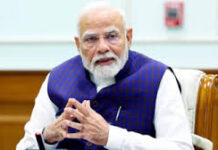New Delhi (NVI): Energy efficiency and conservation is the first fuel before we even start to look at other alternative energy sources/fuels for power generation, electrification and supply purposes,according to International Energy Agency (IEA) analysis.
Although the global economy is all set to double in size over the next 20 years, that does not mean it will need twice as much energy to power all the extra cars, homes and factories such growth will bring.
By taking the available opportunities to become more energy efficient, we would need only the same amount of energy we use today. The result would be a global economy with reduced emissions, lower pollution and enhanced energy security.
“In order to make this scenario a reality and to put the world on track to meeting our international climate targets, efficiency must be at the forefront of global policy-making,” says IEA analysis.
Instead, an alarming slowdown in global efficiency progress is being witnessed. In fact, last year saw the slowest improvement rate this decade.
The International Energy Agency (IEA) has made energy efficiency a top strategic priority. The Global Commission for Urgent Action on Energy Efficiency recently met for the first time at the IEA headquarters in Paris.
Ministers, business leaders and thought leaders from around the world came together to discuss how to accelerate global progress on energy efficiency.
Even before we get too hang up on the idea of providing more new generation capacity to increase access to energy services and improve electrification levels, especially in our rural communities, we need to satisfy ourselves that this new generation capacity will not simply be gobbled up by inefficient use and consumption.
We need to be sure that ‘power hungry’ consumers are aware of energy efficiency and conservation before we release to them our next watt.
In India, for instance, energy efficiency has become an important issue on the political and social agenda in recent years.
It is also clear that simple platitudes for energy efficiency are not adequate. The costs, the benefits and the means of achieving them must all be set out clearly. This is essential to build support for action, and to set out what that action should be.
IEA analysis shows a clear correlation between policies and results. Where good policies are put in place, efficiency gains are made. Without them, efficiency stalls.








